Tor
torproject.org
Mr. Porn Geek reviews Tor
I’ve spent a hell of a long time working in the adult industry and I know better than most that security is a very big deal. How many horror stories of porn blackmail have you heard about? What about general concerns around privacy and being monitored by the biggest players in the game? Well today, Mr. Porn Geek hopes to relieve some of those pressures by recommending Tor. There’s a lot to talk about here, so let’s crack on with the review (plot twist: I’ve already made up my mind) and I’ll walk you through why software like this is important to have when browsing the Internet.
What Tor is
To put it as simply as possible, Tor is a browser that keeps you anonymous when exploring the Internet. It stands for The Onion Router (TOR) and has been in development for at least a decade. I believe it actually started out as a project developed by an arm of the US military, so yeah: it’s pretty diamond stuff. Now the purpose of Tor is to create an incredibly secure connection between you and a third-party server, but it goes further than that, because it also provides you with the ability to obfuscate who you are from the server you’re contacting. Let me explain.
When you contact an Internet server or, for that matter, any other entity on the Internet, it’s almost always going to be done over a protocol called HTTPS. What HTTPS means is that your messages are being scrambled before you connect to the third-party destination and that the returning messages are also scrambled. The way it does this is pretty complex and involves large prime numbers, but the point is that anyone who’s monitoring your connection between your device and the device you’re communicating with won’t see what’s being sent. While they’ll see data, it’ll be a complete mess – they don’t have the key to unlock those secrets!
What HTTPS doesn’t do
HTTPS doesn’t stop people monitoring your connection from knowing what sites you’re communicating with: that’s still traceable by IP addresses and DNS requests. Your ISP is the biggest infringer here and yeah – sometimes they’re ordered to make it impossible for you to access certain addresses. HTTPS also doesn’t protect you from the destination server: they’ll get details on your browser, cookies, IP address and a whole host of other information that they could use to identify you. This is where Tor comes in: they assist in making your connection to the outside world safer and as anonymous as possible.
The basics of Tor working
Tor works by bouncing your communications with a server through a series of layers (like an onion) with multiple destinations along the way handling what’s being sent. When a server sends data to you, it sends it to a Tor node, let’s call it Node A, which then sends it to Node B, then Node C, then finally to your PC – encrypted along the way to boot. Now while the original server knows that it’s sending data to Node A, Node A only knows it’s sending data to Node B and nothing else. Node B knows it’s receiving from A and sending to C, but doesn’t know anything else. Finally, Node C sends the data to you from Node B, but doesn’t know anything else. At the end of this chain, no one individual – apart from you – knows what the original server was, where the message was sent or what the message contained. This creates a great layer of security that will keep you safe while online – as long as you allow it to.
Security using Tor
The most important step when using Tor if you want to remain anonymous is to avoid doing anything that leaves a trail. Naturally, signing into an email address creates a common point of interest, so you can be tracked over multiple sessions through it. The same applies with any account in general or behavioral pattern: the more of a ghost you act, the more of a ghost you’ll be. I highly recommend reading more of the documentation on Tor for more information on how it functions and best practices because yeah: I can’t give you all of the details here. Just know that when used correctly, Tor makes you very difficult to track and in some instances, impossible to locate. While there have been historical breaches, the last major attack and scandal was quite a few years ago. These days, Tor is incredibly resilient and mainly helps protect people against censorship in countries that have less developed political systems. These places still try and block Tor, but there are ways around it, which is good.
Tor for porn
The selling factor regarding porn and Tor is the simple fact that it assists in getting you around a number of roadblocks and hurdles that restrict what content you can access online and when you can actually access it. The problem with Tor is that it’s slow and doesn’t work for every site, but if you’re finding it impossible to access smut, it’s probably the best tool that you can utilize. Mr. Porn Geek tried it out for himself while on a trip to Pakistan – let’s just say that I was able to do 90% of my work in a country that wants me to do 0% of my work!
A wrap on Tor
I’ve always been a massive fan of Tor and I think you should have the browser installed on your PC just in case. Sure, go ahead and use your main browser for most of your content desires, but if there’s anything you want to keep a secret and very much private, Tor is the way to go. As far as genuine software goes for porn browsing online, I don’t think it gets much more useful than The Onion Router. Anyway, that’s it from me: thanks for reading and I hope this review was able to shed some light on why you ought to get Tor for porn viewing. Take care, happy fapping and stay juicy (as well as anonymous!).
- Open source project
- Helps avoid censorship
- Free to use
- Can be slow
- Quite limiting




















































































